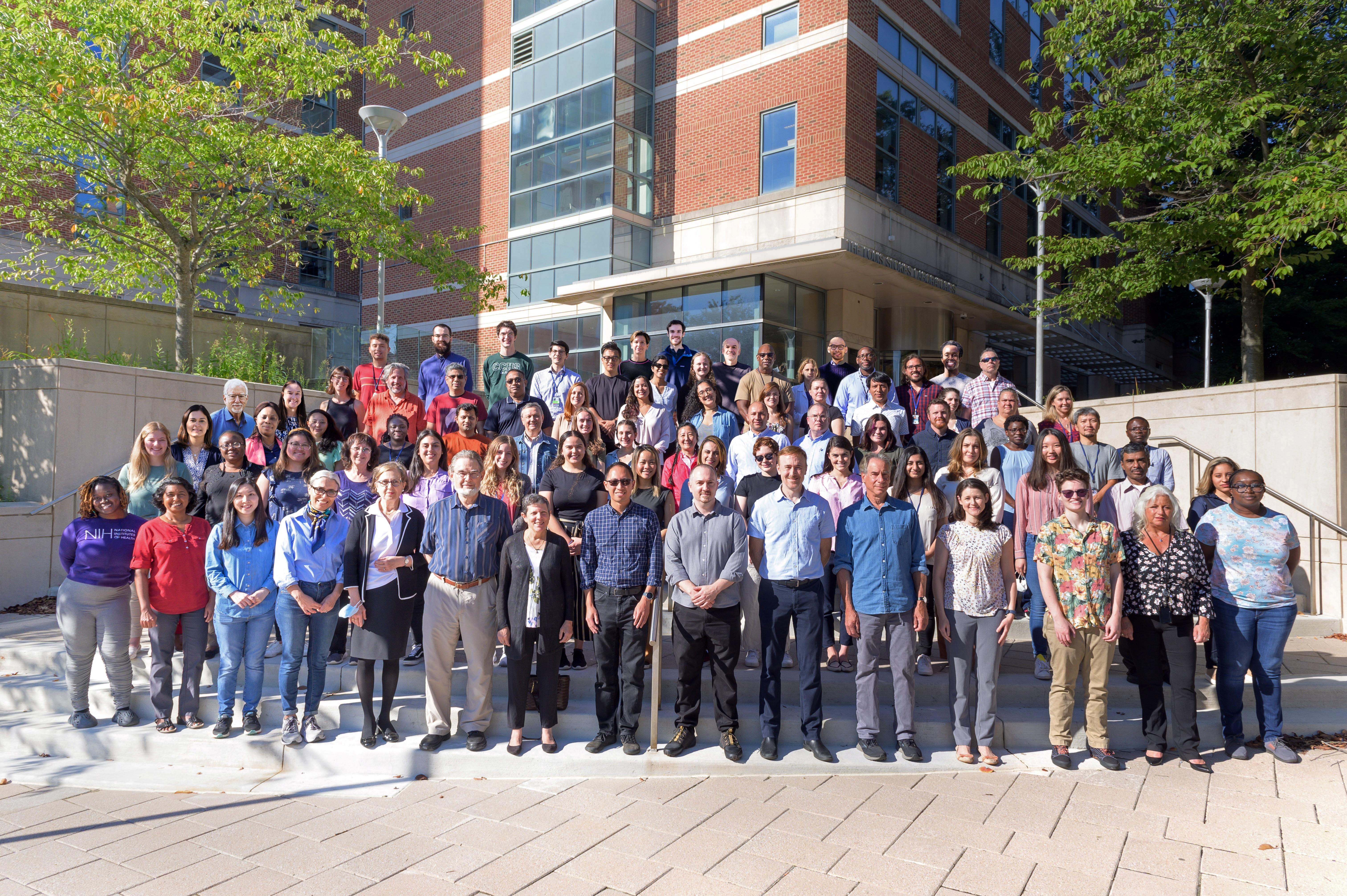Thomas Nutman, M.D., Chief
Elodie Ghedin, Ph.D., Co-Deputy Chief
Amy Klion, M.D., Co-Deputy Chief
The Laboratory of Parasitic Diseases (LPD) conducts basic and applied research on the prevention, control, and treatment of a variety of parasitic and bacterial diseases of global importance. The work of the group is largely directed toward the identification of immunological and molecular targets for disease intervention. The pathogens studied include parasitic protozoa (Leishmania, Toxoplasma, Giardia, Plasmodium, Trypanosoma cruzi, Cryptosporidium, and Entamoeba) and helminths (Filariae, Schistosoma, Strongyloides, and Taenia), as well as non-parasitic agents (e.g., mycobacteria).
LPD includes a clinical group that conducts patient-centered research at the National Institutes of Health Clinical Center, as well as international field studies in India, Latin America, and Africa. Four new programs focus on genetic determinants of virulence in apicomplexan protozoa, the function of the eosinophil in human infectious and inflammatory disease processes, the role of commensal microbiota in immune regulation and homeostasis, and T-cell regulation in mycobacterial and fungal opportunistic infections.
Major Areas of Research
- Uncovering basic aspects of the host-pathogen interaction in humans and experimental animal models, as well as in invertebrate vectors that transmit medically important parasites
- Regulatory environment induced in chronic parasitic and bacterial infection
- Identification of determinants of host resistance and pathology, with a focus on barrier sites

Laboratory of Parasitic Diseases
Credit: NIAID
Office of the Chief
People
The Laboratory of Parasitic Diseases includes the following principal investigators, staff scientists, and/or staff clinicians:
- Subash Babu, M.B.B.S., Ph.D.
- Daniel L. Barber, Ph.D.
- Sasisekhar Bennuru, Ph.D.
- Fadila Bouamr, Ph.D.
- Gregory M. Constantine, M.D.
- Pedro H. Gazzinelli Guimaraes, Ph.D.
- Elodie Ghedin, Ph.D.
- Michael Grigg, Ph.D.
- Sang Hun Lee, Ph.D.
- Dragana Lj. Jankovic, Ph.D.
- Paneez Khoury, M.D., M.H.Sc., FAAAAI
- Amy Klion, M.D.
- Stephen H. Leppla, Ph.D.
- P’ng Loke, Ph.D.
- Mahtab Moayeri, Ph.D.
- Thomas Nutman, M.D.
- Oyebola Oyesola, DVM, Ph.D
- Elise M. O’Connell, M.D.
- David Sacks, Ph.D.
- Shunsuke Sakai, Ph.D.
- Alan Sher, Ph.D.
- Denis Voronin, Ph.D.

